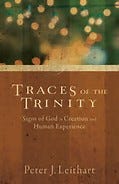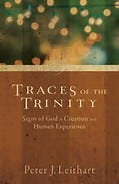Transformative Hospitality


Many books can be filed under “true.” A smaller number should be filed “good.” As everyone knows, the slimmest folder in the book-file is “beautiful.” Peter Leithart’s Traces of the Trinity is one of the few books that falls in that rare category. Perhaps the most beautiful chapter in the book is the seventh, Making Room. Here, Leithart describes the motivation for hospitality as “transformation” rather than “toleration.” Says Leithart:
“We don’t welcome the naked so they can be naked in our presence; we don’t show hospitality to the hungry so they can watch us eat. We welcome the naked and hungry to change their circumstances. We make room for them so we can clothe and feed them. So too with moral hunger and personal shame. We don’t welcome addicts so they can continue in their addiction. We make room for them, and take up residence in their lives, in order to be agents of ethical transformation. We don’t receive the prostitute to help her get more tricks. We open our lives to the prostitute so we can deliver her from her slavery—to the pimp, perhaps to drugs, to poverty, to a destructive life. Hospitality is not universal approval. It is universal welcome for the sake of renewal. We make room not to tolerate but to transform.”
If Leithart is right, then we must not only ask the question of ourselves, “do we ‘welcome’ and ‘serve?'” We must go a step further and ask, “are those whom we are welcoming and serving being transformed?” If the answer is “yes” to the first question and “no” to the second, it may be that our efforts, however noble they may appear, are motivated by something other than love, which is always transformative.
The post Transformative Hospitality appeared first on Kuyperian Commentary.

